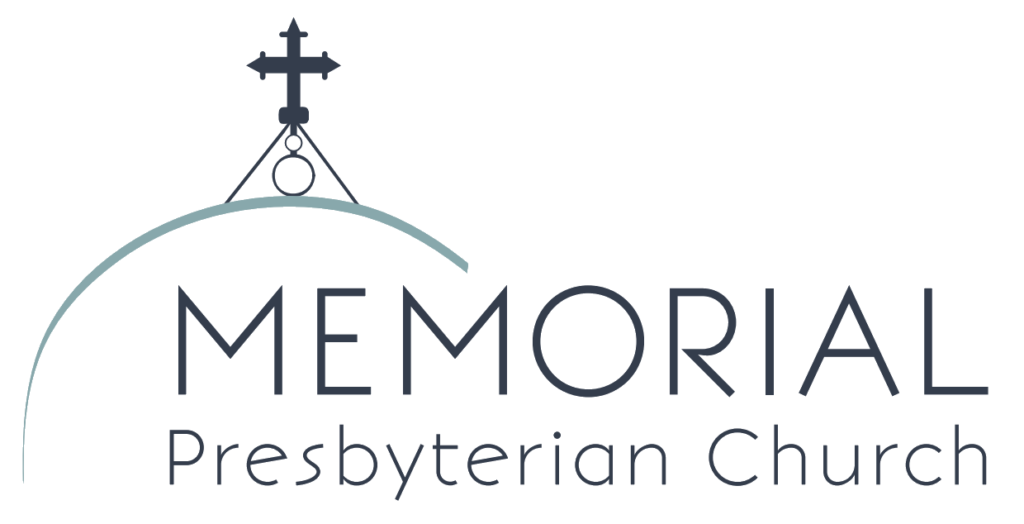Caregivers Support Group
Memorial cares deeply about caregivers.
Caregiving for a loved one can be a privilege and a sacred responsibility. However, it can also be exhausting, daunting, and isolating.
MPC has a Caregivers Support Group that meets once per month at the church. You can attend and share knowing that all is kept in strict confidence. You can attend knowing that there are others who are in the exact same boat.
This group will remind you that God is present, you are loved, and you are not alone.
MPC member, CJ Goodwin, wrote the story below as she started becoming more involved with her dad’s care and caregiving. Below, she shares a bit of her story:
“Easter Dress”
By C. J. Godwin
“My father had a broken pair of glasses in his pocket, but we were at the VA hospital to see his nurse. We had entered at the basement level that felt like the first floor, traversed about three acres of corridors, rode the elevator up, and changed buildings via a covered walkway. By the time the nurse asked my father what floor we were on, I had no idea. But I wouldn’t have said the year was 1983.
He didn’t know I’d contacted his nurse and asked her to do a mental evaluation of him. He had started making mistakes, they were little things, anyone could have made them, but he was making them consistently, and noticing them less and less himself. He quit adding tips correctly. He called me by my cousin’s name. He forgot how to start the lawn mower. The nurse gave him three words to remember, then asked him to spell “world” backwards. “D-O-R-L-D,” he said. He couldn’t remember “car,” “ball,” and “pen,” but he did know the date and day of the week, and that he lived in St. Augustine in Flagler County. St. Augustine, Florida is in St. Johns County, where he had lived nearly ten years. The nurse recommended further testing by a neuropsychologist. This was only our first step to address my father’s vascular dementia.
I had no real reason to think the day would go badly, but there was no reason to think it would go well either. These were fantastical circumstances: my father was retired Air Force, and we would be evaluating his mental acuity—two things that did not belong in the same sentence, at least not for him. I had decided to pretend I was a character in a play, that way I could engage in dialog that advanced my narrative, but not take on the personal grievance of whatever my father might say. For this day, I decided I didn’t have to be his daughter; I decided to play his daughter.
My father was happy, though. I was with him. He wanted to buy me an Easter dress, so we went to the mall before his appointment, we’d make a day of it, with his check-up fitted in. He didn’t know my real reason for being with him. He only knew the ultimate reason I was with him: because I loved him.
On the drive home he told the story of twenty-eight thousand men arriving in New York on the QE II, Kate Smith singing “God Bless America,” German POW’s addressing boxes of Hershey’s chocolates, corn donated by Libby and everything he had eaten on board donated to the troops from American companies. “We didn’t sleep,” he said, “we were going home. Between meals they served cold cuts and bread that you could take with you out on deck.”
He talked about the speeches when they landed, promises of what the politicians were going to do for the veterans. “I never will forget Senator Gore,” my father was referring to Al Gore’s father, “he got up on the platform and he gestured and gyrated like he was really saying something, but none of us could hear him. Then he stepped up and spoke clearly into the microphone: ‘And that’s all you veterans are going to get from any of us in Washington, a bunch of hot air.’”
Then the laughter and the applause, then back to Kate Smith again, how she led the troops singing, and the singing was heard from three miles away. Twenty-eight thousand men. 1983. Some of the numbers didn’t change in my father’s head. He had answered correctly, though, that he was eighty-seven.
The sky was gray while I was driving, the road was gray and gray raindrops hit the windshield. “How long did it take you to cross the Atlantic,” I asked. “Two and a half days. It was fast on the QE II, and they didn’t have to get out of the way for subs,” he answered. He talked about being on J line, he got on J train, and the train cars had been on sidings all during the war collecting soot, so every time he put his arm down it came up black. When he finally got to use the telephone, “Momma, I’m home,” were the only words he could think to say. “We only had three minutes each to make a call,” he told me, “and all the telephone lines were busy. The operator put me through to Milwaukee and that operator connected me to New Orleans, then you’d go to Oregon and from there back to Omaha and all along the way you’d hear the operator’s voice: ‘This is a priority one call, please divert your lines.’ And finally I got through. ‘Momma, I’m home!’”
There was no use in pretending to be his daughter while told me this story. I was his daughter, and he was sharing the best day of his life with me.
A lot of fights would follow in the months ahead. His heightened irritation trapped him in looping arguments where he couldn’t find a door out, and my mother got the worst of it. But we’d take a win where we could get it, especially if it were a victory in Europe, the return of U.S. troops, a repaired pair of eyeglasses, and a new Easter dress.
My father died at 97, but boy my mom had a handful with him the last ten years of his life. She called me in to help from time to time. This is a story of one of those times, and where a happy outcome was a powerful thing.”
Many thanks to C.J. for sharing her story.
If you are in a season of life in which you are providing care for a loved one, please consider attending the MPC Caregivers Support Group. You will find ears to listen to your story, shoulders on which you can cry, and voices to offer prayers and encouragement.
Contact the church office at (904) 829-6451 for the current date and time of the next meeting.
In December, the Caregivers Support Group met in a member's home to share a meal and a special time of fellowship.



